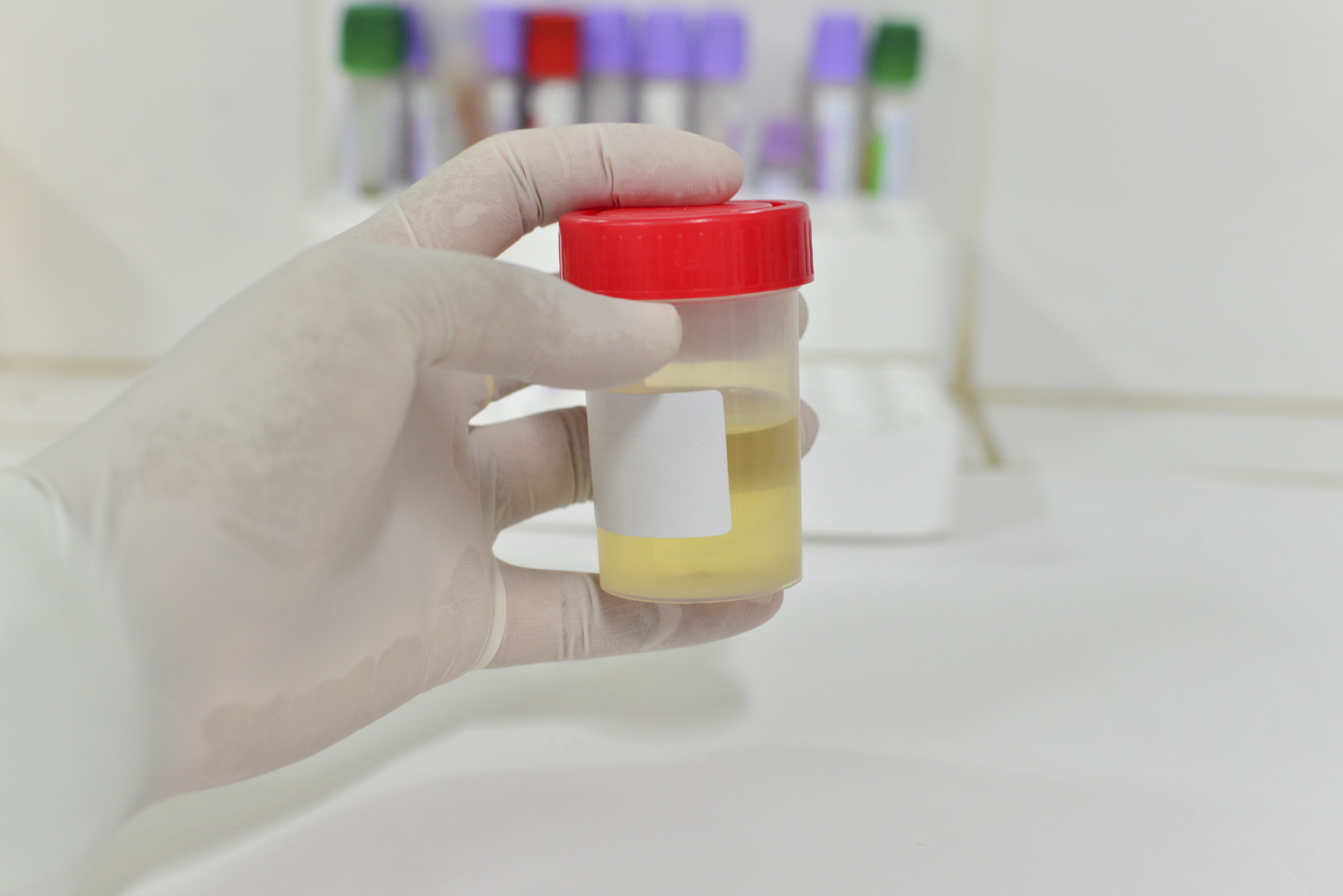
Respiratory health harms often follow flooding: Taking these steps can help

Tips to leverage neuroplasticity to maintain cognitive fitness as you age

Can white noise really help you sleep better?

Celiac disease: Exploring four myths

What is prostatitis and how is it treated?

What is Cushing syndrome?

Exercises to relieve joint pain

Think your child has ADHD? What your pediatrician can do

Foam roller: Could you benefit from this massage tool?

Stepping up activity if winter slowed you down
Cancer Archive
Articles
Treatment versus monitoring of prostate cancer: Survival rates the same after 10 years
Two new studies add to the evidence that for many men with prostate cancer, if it is detected early and has not metastasized beyond the prostate gland, monitoring the cancer will lead to the same chance of survival after 10 as choosing surgery or radiation. Men treated with surgery or radiation often experience significant side effects. The rates of depression and anxiety were the same in men who opted for monitoring and those who opted for treatment.
Top screenings to avoid cancer
Talk to your doctor to nail down your cancer risk, and check this list to see which tests may help save your life.
听Images: Monkey Business Images/Thinkstock
Recommendations for cancer screenings sometimes change, and it can be confusing about which tests you need and when. "It's best to talk to your doctor about your cancer risk factors and family history, learn which screenings are right for you, and then develop and stick to a screening schedule," says Dr. JoAnn Manson, chief of preventive medicine at Harvard-affiliated Brigham and Women's Hospital.
Routine screenings
Other screening tests
Some screenings are not recommended routinely but may be important based on your cancer risk.
Lung cancer. The American Lung Association recommends low-dose computed tomography to detect early signs of lung cancer for heavy smokers ages 55 to 74 who have a 30 pack-year smoking history (equivalent to one pack per day for 30 years) and who have smoked within the past 15 years. The USPSTF extends the screening age to 80. If you're not in this group, you should not have routine screening; the risk from radiation exposure and potential unnecessary follow-up testing is not worth the small chance of benefit.
Skin cancer. The USPSTF says there's not enough evidence to recommend regular visual skin exams by a doctor to screen for skin cancer, and that screenings increase the risk for unnecessary biopsies, overdiagnosis, and overtreatment. The American Academy of Dermatology suggests that all people conduct skin self-exams and report any unusual spots on their skin to a dermatologist.
People with an increased risk for melanoma, the deadliest form of skin cancer, should talk to a dermatologist about how often they should get a skin exam.
What about a PSA test?One of the most debated screenings is the blood test used to look for prostate cancer in men. It measures the level of a protein in the blood called prostate-specific antigen (PSA), which can rise when prostate cancer develops. In 2012, the USPSTF recommended against routine PSA tests, saying they raise the risk of unnecessary follow-up testing and treatment, which can cause problems such as incontinence and erectile dysfunction. Recent evidence shows that fewer men are being screened as a result. "The sentiment among many physicians now is against offering routine PSA testing for men, especially when nearly every study has not shown any tangible benefits for those who have undergone testing and treatment," says oncologist Dr. Marc Garnick, editor in chief of Harvard's Annual Report on Prostate Diseases. The American Cancer Society suggests that men 50 or older (at average risk for prostate cancer) make the decision about screening with their doctor, but only if they have a life expectancy of at least 10 years, and only if they have been advised about the uncertainties, risks, and potential benefits of prostate cancer screening. |
听
A new look at colon cancer screening
Don't be intimidated about screening tests. The latest guidelines suggest you can choose from multiple strategies.
Image: Bigstock
Colon cancer continues to be the country's second leading cause of cancer-related deaths and the third most common cancer in men, according to the CDC.
It almost always develops from precancerous polyps (abnormal growths). Screening tests, which are recommended for men ages 50 to 75, help find and sometimes aid removal of polyps before they become cancer. (Men older than 75 may still benefit, depending on their health.)
Cancer and diet: What鈥檚 the connection?
Your dietary habits can promote cancer or protect against it.
听Image: Udra/ Thinkstock
The link between cancer and diet is just as mysterious as the disease itself. Much research has pointed toward certain foods and nutrients that may help prevent鈥攐r, conversely, contribute to鈥攃ertain types of cancer.
While there are many factors you can't change that increase your cancer risk, such as genetics and environment, there are others you can control. In fact, estimates suggest that less than 30% of a person's lifetime risk of getting cancer results from uncontrollable factors. The rest you have the power to change, including your diet.
Adapting to life after cancer
Once you've completed treatment, adjusting to a "new normal" can be challenging.
Image: RuslaGuzov/ Thinkstock
Completing cancer therapy can feel like a graduation. You've done some hard work, it's paid off, and you may be ready to celebrate. But saying goodbye to treatment can arouse many of the emotions and uncertainties associated with beginning a new chapter in life.
Dr. Larissa Nekhlyudov is a general internist who works with cancer survivors at two Harvard affiliates, Brigham and Women's Hospital and Dana-Farber Cancer Institute. She acknowledges that cancer survivors have a lot to deal with. "Once you've had your final chemotherapy infusion or swallowed the last pill, you may find yourself facing a new set of challenges鈥攎onitoring yourself for signs of recurrence, getting recommended follow-up care, adjusting to the long-term effects of treatment, psychologically adapting to normal life, and working to stay in good health," Dr. Nekhlyudov says.
Beverage temperature tied to cancer risk
Beverages consumed at temperatures above 150° F may contribute to esophageal cancer.
New urine test predicts high-grade prostate cancer
Researchers believe that a non-invasive screening test that can identify genetic markers for high-grade prostate cancer in urine may eventually reduce the number of prostate biopsies needed. However, experts also caution that while the number of non-invasive tests for prostate cancer diagnosis is growing, these are still early days in their development.
Gum disease may signal warning for pancreatic cancer
Research has found that people with high levels of the oral bacteria Porphyromonas gingivalis had a 59% greater risk of developing pancreatic cancer. It is too early to say whether this specific bacterium directly contributes to the disease. However, one theory is that since inflammation is related to cancer, the bacteria could cause inflammation in the pancreas. Another possibility is the bacteria are simply a marker for cancer-causing inflammation.

Respiratory health harms often follow flooding: Taking these steps can help

Tips to leverage neuroplasticity to maintain cognitive fitness as you age

Can white noise really help you sleep better?

Celiac disease: Exploring four myths

What is prostatitis and how is it treated?

What is Cushing syndrome?

Exercises to relieve joint pain

Think your child has ADHD? What your pediatrician can do

Foam roller: Could you benefit from this massage tool?

Stepping up activity if winter slowed you down
Free Healthbeat Signup
Get the latest in health news delivered to your inbox!
Sign Up











